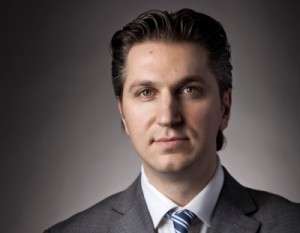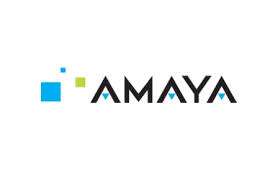Names Revealed in Amaya Gaming Insider Trading Investigation
In December 2014, the Montreal offices of Amaya Gaming, the Montreal branch of the company’s investment bank, Canaccord Genuity Securities, and the Dorval (Montreal suburb) branch of insurance company Manulife Financial were raided by officials from the Autorité des Marchés Financiers (AMF), the Quebec financial markets regulatory body, and the Royal Canadian Mounted Police (RCMP). The goal: to find evidence of insider trading shenanigans related to Amaya’s $4.9 billion purchase of PokerStars parent Oldford Group. Over the last few months, bits and pieces of information on the investigation of been revealed; over the weekend, Toronto-based newspaper The Globe and Mail offered further details.
Last we knew, on the Amaya side of the raid, three employees were specific persons of interest in the investigation, but their names had been redacted from any documents that had been released to the public. The Globe and Mail has now confirmed two of the three Amaya employees, names were suspected all along, Amaya Chief Executive Officer David Baazov and Chief Financial Officer Daniel Sebag. The third employee is still anonymous. In April, Amaya released a statement that read, in part:
Ben Soave, retired Chief Superintendent of the RCMP, a member of Amaya’s Compliance Committee and an advisor to the Board of Directors since 2012, said: “We have thoroughly reviewed the relevant internal activities around its acquisition of Oldford Group and have found no evidence of any violation of Canadian securities laws or regulations including tipping and insider trading by CEO David Baazov and CFO Daniel Sebag. Additionally, the company has not been provided with any evidence that any executives, directors, or employees violated any securities laws or regulations.”
The AMF investigation has not resulted in any proceedings and no charges have been filed. The company is confident that at the end of the investigation the AMF will come to the same conclusion as Amaya has — that if there were violations of Canadian securities laws, they were not committed by the Company, officers or directors. …
The issue at hand, in a nutshell, is that Amaya’s stock, which had been performing poorly for quite some time, suddenly rose in value in the two months leading up to the June 12, 2014 announcement of the blockbuster PokerStars deal. The company had not been doing well financially, having lost money for three straight years on top of being cash poor. On April 16, 2014, its stock price was $5.81. By the end of May, it was up over $10 per share. The day before the deal was announced, Amaya’s stock closed at $12.02. Thus, with no news, the stock had more than doubled in less than two months. Of course, it soared from there, hitting a high of $38.74 on November 28, 2014.

Amaya Gaming CEO David Baazov
Image source: CantechLetter.com
Not only did Amaya’s stock take off in the weeks leading up to the announcement, but trading was also much heavier than normal, approximately double what it was on average before the climb.
The question that Canadian authorities want answered, then, is *why* did Amaya’s stock shoot up so precipitously before the deal announcement. Two whistleblowers, according to The Globe and Mail, said it was insider trading.
“The investigation reveals that certain individuals in possession of privileged information transmitted that information to several people. These people then took advantage of that information and traded on Amaya shares,” wrote the AMF in an affidavit The Globe and Mail acquired.
On the Canaccord side, two highly-placed employees are being investigated, according to sources close to the newspaper: Stuart Raftus, Chief Executive Officer of the company’s wealth management division, and Peter Kirby, a top broker with the firm. Canaccord said that it has conducted an internal investigation and, like Amaya Gaming, has not found any wrongdoing on the part of its people.
The AMF is investigating essentially all 15 employees at Manulife, mostly brokers.
On top of all that, the Financial Industry Regulatory Authority (FINRA) is taking a closer look at more than 300 Amaya investors who traded the company’s shares prior to the PokerStars announcement. FINRA regularly puts out lists of people and organizations who made significant trades in advance of company news so that those involved in corporate transactions can be made aware of who was making financial moves. Normally, nothing comes of it, but in this case, the Amaya list was much, much larger than these lists normally are, especially for a company that is not typically involved in heavy trading. That raised a red flag.
And while Amaya has said that CEO David Baazov has done nothing wrong, it looks a bit fishy that, according to The Globe and Mail, three of the investors on the FINRA list are either friends or business associates of Baazov. The father of Canaccord’s Peter Kirby is on the list, as is Canaccord’s head of trading, Darren Hunter, and the father of the company’s head of sales. While all of their trading could be coincidental or simply based on confidence in Amaya, it does certainly arouse some justified suspicion.



















COMMENTS